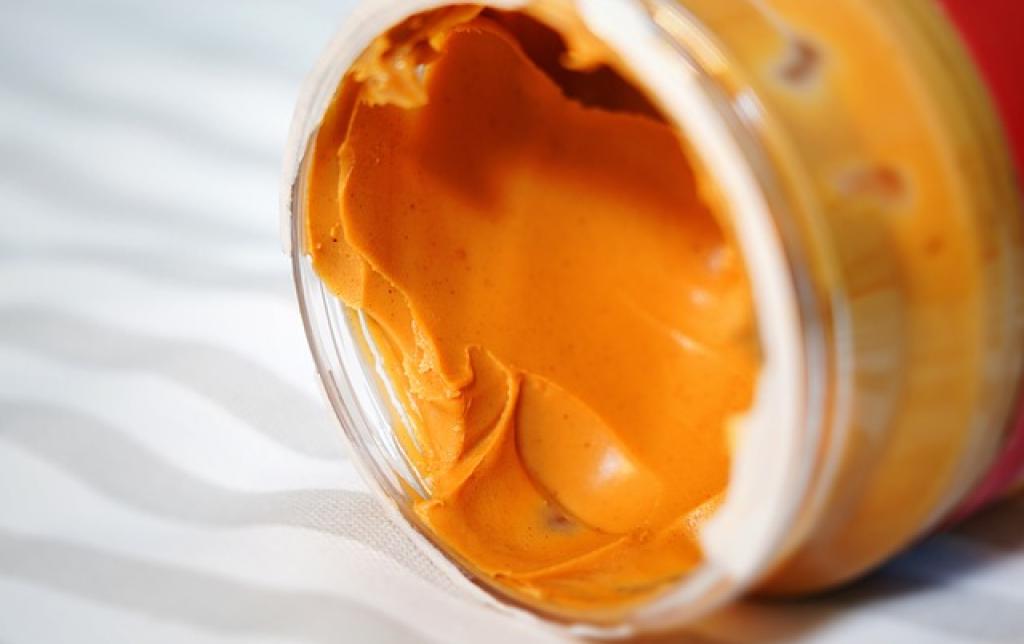Living with a fatty liver can feel overwhelming, but the right dietary choices might make a world of difference. Imagine harnessing the power of the ketogenic diet to support and manage your liver health effectively. Sounds intriguing, right?
As scientific support grows, many are turning to keto—a low-carb, high-fat diet—to aid in liver health. Why? Because the switch from carbs to fats can potentially ease liver fat accumulation.
In this post, we’ll explore how you can safely navigate the keto diet to improve liver function. From understanding the crucial role of fats to incorporating liver-friendly foods, you’ll gain valuable insights and actionable tips.
Let’s delve into making keto work for you and your liver!
What is Fatty Liver and Why Does It Matter?
Fatty liver, known medically as hepatic steatosis, occurs when excess fat builds up in the liver. While our liver naturally contains some fat, issues arise when it makes up more than 5-10% of the liver’s weight.
The Impacts on Health
Why does this matter? Left unchecked, fatty liver can lead to inflammation and liver damage. This can progress to more severe conditions like non-alcoholic steatohepatitis (NASH), fibrosis, or even cirrhosis.
Fatty liver often flies under the radar due to its subtle symptoms, including fatigue and discomfort in the upper right abdomen. Many individuals only discover it through routine check-ups.
Driven by Lifestyle
The root causes often tie back to lifestyle choices such as poor diet and sedentary habits. Making informed dietary changes, like adopting a keto diet, can be a proactive step towards mitigating risks.
Understanding these basics sets the stage for effective management strategies. Let’s explore how the keto diet can align with your liver health goals.
Benefits of a Keto Diet for Fatty Liver Management
The keto diet isn’t just a passing trend; it offers some promising benefits for those managing fatty liver. By drastically reducing carb intake and increasing healthy fats, your body enters ketosis, burning fat for fuel instead of glucose.
Reducing Liver Fat
One of the notable advantages of keto is its potential to reduce liver fat accumulation. With lower insulin levels through carb reduction, your body might stop storing fat and start using it more efficiently for energy.
Supporting Weight Loss
Shedding excess pounds can be a game-changer in managing fatty liver. By following a ketogenic lifestyle, many people experience weight loss, which can further decrease liver fat and improve overall liver function.
Coupled with this, ketogenic diets can stabilize blood sugar and hormone levels. This not only helps with weight management but also alleviates stress on the liver.
Transitioning to a keto diet emphasizes consuming liver-friendly foods like green leafy vegetables, avocados, and nuts. These choices deliver essential nutrients while supporting satiety and overall health.
Next, let’s dive into best practices to implement a keto diet effectively for your liver’s well-being!
Key Principles of a Keto Diet for Fatty Liver
Embarking on a keto journey to improve liver health means embracing a few key principles. First, prioritizing high-quality fats is crucial. Opt for sources like olive oil, avocados, and fatty fish, which provide omega-3s known for their liver-supporting properties.
Next, cut down carbohydrates significantly. This means waving goodbye to sugars and starchy foods. Instead, embrace non-starchy vegetables like spinach, kale, and broccoli. These choices deliver vital nutrients without excessive carbs.
Protein is also important, but moderation is key. Focus on lean proteins such as poultry and plant-based options like tofu, if they align with your dietary preferences. Avoid processed meats as they may pose challenges for the liver.
Consistency is another pillar. Stick to your new eating habits, ensuring your body remains in ketosis. This consistent state encourages fat burning and can ease liver inflammation.
Finally, stay hydrated. Water aids digestion and can flush out toxins, complementing your dietary efforts. Keeping an eye on portion control and mindful eating rounds off this approach, allowing you to maintain weight loss and liver health long-term.
By adhering to these principles, you set the stage for a more balanced and liver-friendly lifestyle.
Choosing the Right Fats and Proteins
The keto diet is all about choosing the right macronutrients to support liver health while keeping you in ketosis. When it comes to fats, focus on incorporating healthy, unsaturated fats. Think avocados, nuts, seeds, and olive oil. These fats not only support heart health but also provide essential nutrients that benefit your liver.
Incorporating Omega-3s
Don’t forget the omega-3 fatty acids found in fatty fish like salmon, mackerel, and sardines. These fats are known for their anti-inflammatory properties, which can be particularly beneficial in managing liver health.
When selecting proteins, lean toward high-quality sources. Grass-fed beef, free-range poultry, and eggs are excellent choices. If you prefer plant-based options, tofu and tempeh can be great additions, providing you with necessary protein without overloading the liver.
Portion size matters, so aim for moderate servings to keep your protein intake balanced. This helps maintain the body’s ability to stay in ketosis while avoiding unnecessary stress on the liver.
By carefully selecting the right fats and proteins, you’ll create a nutrient-rich diet that promotes not just ketosis, but also optimal liver function and overall health.

Monitoring Progress and Adjusting Your Keto Plan
Embarking on a keto journey for liver health requires consistent tracking and willingness to adjust your strategy as needed. Regularly monitoring your progress helps ensure that your liver is reaping the benefits of your dietary changes.
Keeping an Eye on Key Metrics
Start by keeping a food journal or using an app to track your daily macros and nutritional intake. This provides a clear picture of how closely you’re sticking to your dietary goals. Changes in energy levels, mood, and even sleep quality can also offer insights into how well your body is adjusting to the diet.
Routine medical check-ups are essential. Your healthcare provider can run liver function tests and offer personalized advice based on your progress. These tests are crucial for understanding how your liver responds to the keto diet.
Be prepared to make tweaks. If you’re not seeing desired results, consider shifting your macronutrient ratios, or varying your food sources to ensure a well-rounded nutritional profile. You might need to slow down weight loss or increase certain nutrient intakes.
With patience and attention, you can craft a keto plan that effectively supports your liver health journey while fitting seamlessly into your lifestyle.
Incorporating Exercise and Lifestyle Changes
Diet is a crucial component, but complementing it with exercise and lifestyle modifications can significantly boost your efforts in managing a fatty liver. Engaging in regular physical activity not only aids in weight loss but also enhances liver function and overall health.
Start with activities you enjoy, whether it’s brisk walking, swimming, or cycling. Aim for at least 150 minutes of moderate-intensity exercise per week. This not only helps burn off excess fat but also improves your body’s insulin sensitivity, positively impacting your liver’s health.
In addition to exercise, look at the bigger picture of lifestyle changes. Reducing stress through practices like yoga, meditation, or even simple breathing exercises can lower cortisol levels, which in turn might help with fat reduction around the organs.
Ensuring a good night’s sleep is another important lifestyle aspect. Quality sleep can support metabolism and weight management, aiding your keto and liver health endeavors.
Finally, avoid alcohol and smoking, as both can exacerbate liver conditions. With these adjustments alongside a well-structured keto diet, you’re setting a strong foundation for long-term health and wellness.
Recipes and Meal Planning Tips for Managing Fatty Liver
Enjoying delicious meals while supporting liver health on a keto diet is absolutely possible. Focus on meals that are both satisfying and nourishing, emphasizing healthy fats and low-carb ingredients.
Delicious and Simple Recipe Ideas
Start with breakfast by whipping up an avocado and spinach omelette. This meal is rich in healthy fats and micronutrients, setting a strong tone for the day. For lunch, consider a salmon salad tossed with mixed greens and olive oil vinaigrette. It’s a powerhouse of omega-3s and fiber.
Dinner can be just as exciting. Try a zucchini noodle bowl with pesto and grilled chicken. The zucchini keeps it low-carb, and homemade pesto adds flavor without the carbs found in traditional sauces.
Meal prepping can simplify your week. Choose a day to prepare meals in batches. Don’t shy away from reusing ingredients—like using leftover grilled chicken in a lettuce wrap for lunch.
Hydrating is key, so ensure you’re drinking enough water and consider herbal teas to add variety. Stock up on essentials like nuts and seeds for easy keto snacks on the go.
Planning with these liver-friendly recipes ensures you stay on track while enjoying every bite on your keto journey.
The Bottom Line: Sustaining Long-Term Success
Embarking on a keto diet is more than just a dietary change; it’s a lifestyle transformation that offers potential benefits for managing a fatty liver. The key to sustaining success lies in understanding and embracing the various facets of this approach.
First, remember that consistency is your ally. The cumulative effect of making thoughtful dietary choices, engaging in regular physical activity, and monitoring your progress significantly enhances liver health and overall wellbeing.
Incorporating a variety of nutrient-rich foods ensures that meals remain both satisfying and beneficial. As you become attuned to what works best for your body, adjustments will feel more intuitive and less like a chore.
Alongside dietary changes, integrating lifestyle modifications such as stress management and exercise helps in maintaining your liver-friendly routine. These practices support your body holistically, aiding not just the liver but contributing to improved health across the board.
Of course, be prepared for obstacles and setbacks. A compassionate approach to yourself will empower you to find solutions rather than get discouraged. Flexibility with your plan allows you to handle such challenges effectively while remaining committed to your health goals.
Ultimately, your journey with the keto diet is deeply personal and unique to you. It’s important to celebrate small victories and understand that achieving long-term success is a blend of determination, adaptation, and self-care.
With a proactive mindset and these strategies in hand, you’re well-equipped to support your liver health for the long haul, paving a path to a healthier, happier you.










